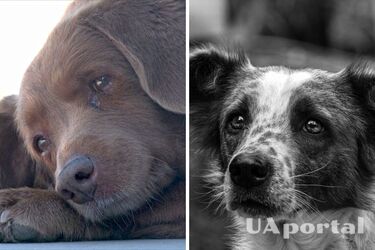How to properly care for an elderly dog: 10 tips

As your dog enters its senior years, it needs special care to help prolong its life. The age at which a dog becomes a senior depends on their size. For example, a large dog such as a Great Dane will be considered senior at around 7 years of age, while a Chihuahua will be considered middle-aged at 7 years of age.
Read also: Why dogs smile and what it means
- Schedule annual visits to the vet. As your dog gets older, it's important to change the way you approach vet visits. Instead of only responding to illnesses or occasional consultations, start a regular annual checkup. They are becoming more susceptible to diseases that may manifest themselves in a subtle way. Having annual checkups will allow you to catch potential health issues in time. In addition, your veterinarian will also assess your dog's body condition and help you control his weight;
- Control your dog's weight. Older dogs become less active, so it's important to change their diet. If you continue to give your dog the same amount of food as before, he may gain weight. Being overweight can lead to serious health problems, such as diabetes, heart disease, cancer, and skin conditions. Talk to your veterinarian about your senior dog's nutritional needs to ensure he is getting enough, but not too much, nutrition;
- DHA and EPA fatty acids are essential. As your dog ages, joint problems, mobility, and arthritis occur. To maintain your senior dog's mobility, it is recommended to include foods rich in DHA and EPA fatty acids in the diet. Additionally, you should consider prescribing chondroitin and glucosamine supplements to protect your dog's joints;
- Maintain proper oral hygiene for your dog. From puppyhood, it is recommended to take care of your dog's teeth. Continue to take care of your dog's teeth as an adult. Regular brushing is the best option. If your dog is unable to brush his teeth, you can use special treats to help remove plaque and freshen his breath;
- Schedule regular medical checkups. As your senior dog becomes less active, it's important to consider the possibility of ticks that could attach to him and transmit Lyme disease. This is especially dangerous for your elderly dog, as his health can become worse if he is infected with the disease. It's also worth checking for ear mites regularly, as they can be very unpleasant for your dog. Pay attention to any changes in your dog's condition and contact your veterinarian in time;
- Get your dog involved in exercise. Even if your senior dog can't run around the block or chase rabbits like he used to, he still needs exercise. The amount and type of exercise depends on the size of the dog. For example, a Great Dane may need one walk around the block every day to stay healthy and active. But for smaller dogs, such as Chihuahuas, this walk may be too strenuous. Smaller breeds need less exercise, but all older dogs need to get regular walks and stay active;
- Provide your elderly dog with toys. The fact that your dog, as he gets older, can no longer fetch a ball or a stick doesn't mean he's not interested in playing. His body may be old, but his mind is still alert. Buy puzzle toys for your dog that do not require much physical effort;
- Provide a comfortable sleeping place. If your elderly dog suffers from arthritis, it is important to provide him with a comfortable and soft bed to sleep in. A soft bed will help reduce discomfort and pain. If your dog sleeps on a soft bed at night, he will be less prone to pain;
- Adapt your home. If your home has several steps that your dog cannot easily traverse, it may be worth installing a ramp to make it easier for him to get up and down. Arthritis can make movement difficult, so this measure can make it much easier to get her around. Also, consider placing a mat on the slippery surface your dog walks on most often. This will help him to get a better footing and ensure safer movement;
- Give her more love. Your elderly dog may lack energy and well-being on a daily basis, so he needs extra love and attention. It would be great to spend more time together with her, just sitting on the couch and watching TV. It can be enjoyable for both you and her.
Earlier, we wrote about what dogs think when they bow their heads, as well as about 3 dog breeds that bring good luck to their owners.
If you want to get the latest news about the war and events in Ukraine, subscribe to our Telegram channel!
